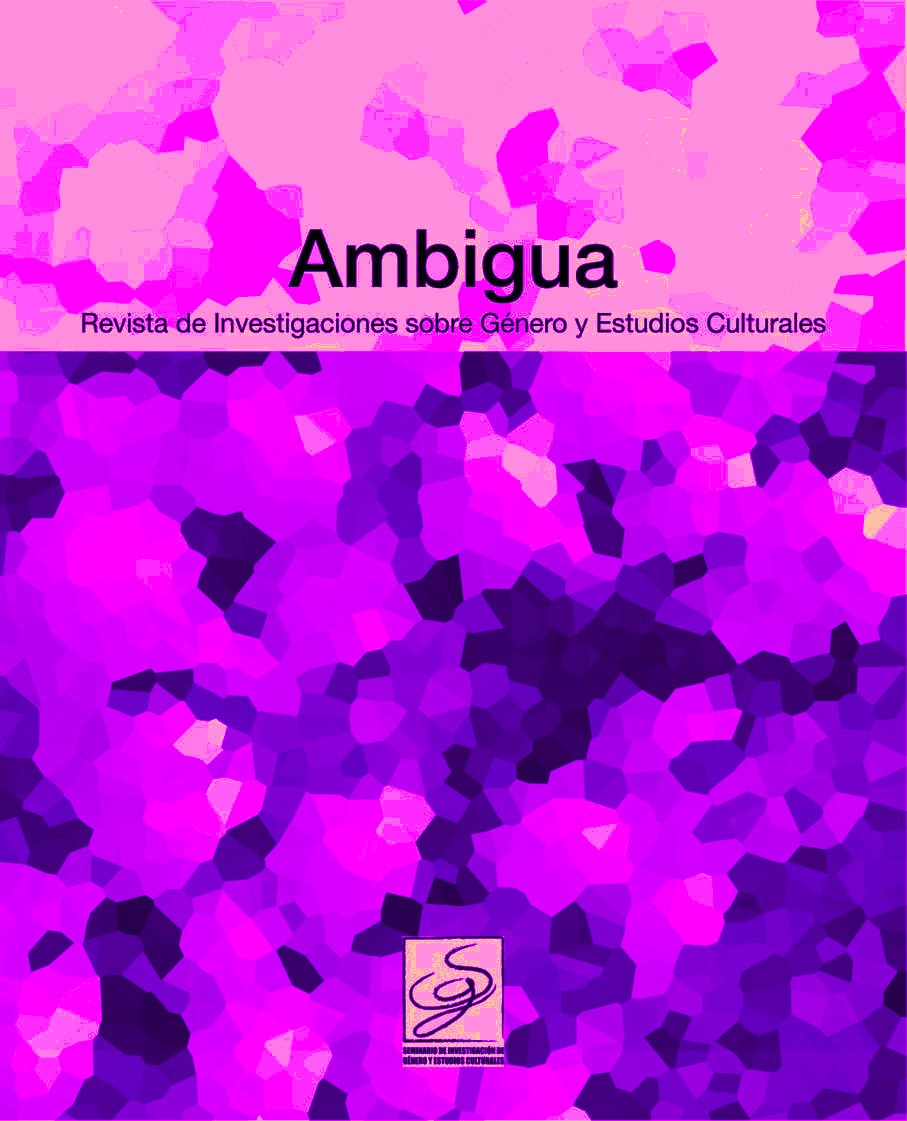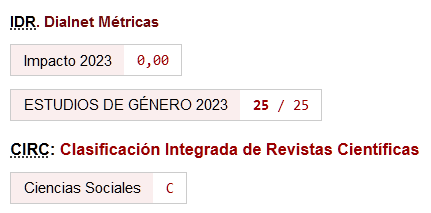El poder del mito y los mitos del poder en la educación teatral:
Gordon Craig como Hamlet.
DOI:
https://doi.org/10.46661/ambigua.11319Palabras clave:
pedagogías feministas, ampliación del canon teatral, autoritarismo, Misoginia, teatro británico, Edward Gordon CraigResumen
El siguiente artículo explora la influencia de los mitos literarios y las narrativas autobiográficas en el desarrollo de las estructuras de liderazgo y autoridad en la educación teatral. A través del análisis de la figura de Edward Gordon Craig y de su identificación con Hamlet, se desentraña cómo los arquetipos culturales construidos alrededor de ciertas personalidades históricas han moldeado las dinámicas de poder, exclusión y prestigio del teatro moderno.
La investigación destaca la necesidad de deconstruir la tradición heroica asociada a la figura masculina del director escénico como único autor del espectáculo, abriendo un espacio educativo más diverso, inclusivo y seguro. Para ello, el estudio se centra en reconocer y valorar contribuciones femeninas marginadas por el relato dominante. Al examinar bajo el prisma de las ecologías cognitivas y la mitocrítica la participación de Isadora Duncan, Edith Craig y Ellen Terry, entre otras, se propone una reevaluación de la historiografía teatral que incorpora la perspectiva de género y la crítica feminista como herramientas para la transformación educativa y artística.
El texto argumenta que la genealogía de las artes escénicas debe considerar la autoría social, la escenografía expandida y la creatividad actoral como constructoras de conocimiento. Resignificando con ello el teatro del siglo XXI, al alejarlo del culto al genio intelectual y el individualismo, y reconociendo la práctica estética colectiva y sus contextos como esenciales en la metodología y enseñanza de la creación artística.
"El poder del mito y los mitos del poder en la educación teatral: Edward Gordon Craig como Hamlet" invita a una reflexión crítica sobre los roles de género, la autoría y el poder en la educación y en el arte, proponiendo un enfoque pedagógico que amplía el canon teatral, desafía las jerarquías tradicionales y fomenta una práctica escénica verdaderamente representativa y enriquecedora para todas las personas involucradas.
Descargas
Citas
AMBROSE, Cohen. "Ecologies of Experience: John Dewey, Distributed Cognition, and the Cultural-Cognitive Ecosystem of Theatre-Training Settings." Symposium 27 (1), 2019: 80-91. https://doi.org/10.1353/tsy.2019.0006
AUERBACH, Nina. "Dracula: A Vampire of Our Own." En Our Vampires, Ourselves, 61-98. Chicago: University of Chicago Press, 1995. https://doi.org/10.7208/chicago/9780226056180.001.0001
AUERBACH, Nina. Ellen Terry. Player in her time. New York: W.W. Norton & Company, 1989.
AUERBACH, Nina. Ellen Terry. Player in her time. New York: W.W. Norton & Company, 1989.
AUERBACH, Nina. Woman and the Demon: The Life of a Victorian Myth. Cambridge, Massachusetts: Harvard University Press, 1982.
BAY-CHENG, Sarah, y Amy STRAHLER HOLZAPFEL. "The Living Theatre: A Brief History of a Bodily Metaphor." Journal of Dramatic Theory and Criticism, vol. 25 no. 1, 2010: 9-27. https://doi.org/10.1353/dtc.2010.0009
BLAS BRUNEL, Alicia. "Paralipómenos sobre: "Edward Gordon Craig. El espacio como espectáculo." ADE-Teatro, N.º 134, 2011: 150-167.
BLAS BRUNEL, Alicia. "The Pioneer Players: La fusión de Arte y Vida como otra forma de teatro político." ADE-Teatro 146, 2013: 62-64.
BLAS BRUNEL, Alicia. "Trabajando a la sombra de las estrellas: Edy Craig o la dirección de escena entendida como un trabajo de participación comunitaria." ADE-Teatro 125, 2009: 168-176.
BLOOM, Harold. Shakespeare, la invención de lo humano. Barcelona: Anagrama, 2002.
BROWN, Jeffrey M. "A Verbal Life on the Lips of the Living: Virginia Woolf, Ellen Terry, and the Victorian Contemporary." En Virginia Woolf and Her Female Contemporaries, de Julie Vandivere y Megan Hicks, 29-35. Liverpool: Liverpool University Press, 2016. https://doi.org/10.5949/liverpool/9781942954088.003.0005
BURT, Philippa. "Edward Gordon Craig as Teacher-Dictator." New Theatre Quarterly, 40(4), 2024.
CASTORIADIS, Cornelius. La Institución Imaginaria de la Sociedad. El imaginario social y la institución. Buenos Aires: Tusquets Editores, 2003.
CEREZO, Marta. Critical approaches to Shakespeare: Shakespeare for all time. Madrid: Servicio de Publicaciones Universidad Nacional de Educación a Distancia, UNED, 2017.
COCKIN, Katharine. Edith Craig (1869-1947): A Dramatic Life. London: Cassel, 1998.
COCKIN, Katharine. "Bram Stoker, Ellen Terry, Pamela Colman Smith and the Art of Devilry." En Bram Stoker and the Gothic, de Catherine Wynne, 159-171. London: Palgrave Macmillan, 2016. https://doi.org/10.1057/9781137465047_11
COCKIN, Katharine. Edith Craig and the Theater of Art. Oxford: Bloomsbury, 2017.
CRAIG, Edward Gordon. Escritos sobre Teatro I. Del arte del teatro. Hacia un nuevo teatro, 55-241. Madrid: Publicaciones de la Asociación de directores de escena de España (ADE), 2011.
CRAIG, Edward Gordon. Ellen Terry and Her Secret Self. London: Marston & Co, 1931.
CRAIG, Edward Gordon. Henry Irving. London: J.M. Dent & Sons Ltd., 1930.
FARSON, Daniel. The Man Who Wrote Dracula: A Biography of Bram Stoker, London: Michael Josep, 1975.
FRAISSE, Geneviève. Musa de la razón. La democracia excluyente y la diferencia de los sexos. Madrid: Cátedra, 1991.
FREUD, Sigmund. «Sobre un tipo particular de elección de objeto en el hombre (Contribuciones a la psicología del amor, I 1910).» En Obras completas, XI. Cinco conferencias sobre psicoanálisis. Un recuerdo infantil sobre Leonardo da Vinci, y otras obras, 155-168. Buenos Aires: Amorrortu, 1997.
GANDOLFI, Roberta. La prima regista. Edith Craig, fra rivoluzione della scena e cultura delle donne. Rome: Bulzoni, 2003.
GAYLE, Lewis. "From Ghosts to Ancestors: The psychoanalytic vision of Hans Loewald." The American Journal of Psychoanalysis 58, 1998: 337-338.
GRANDE ROSALES, María Ángeles. La noche esteticista de Edward Gordon Craig. Poética y práctica teatral. Alcalá de Henares: Publicaciones Universidad Alcalá de Henares, 1997.
HARAWAY, Donna. "Conocimientos situados: la cuestión científica en el feminismo y el privilegio de la perspectiva parcial." En Ciencia, cyborgs y mujeres: la reinvención de la naturaleza., 329-333. Madrid: Cátedra, 1997.
HERMAN, Judith. Trauma y recuperación. Como superar las consecuencias de la violencia. Madrid: Espasa Calpe, 2004.
HOLLEDGE, Julie. Innocent Flowers: Women in the Edwardian Theatre. London: Virago, 1981.
INNES, Christopher. Edward Gordon Craig: A Vision of the Theatre. London and New York: Routledge, 1998.
MEDEROS SYSSOYEVA, Kathryn & PROUDFIT, Scott ed. Women, Collective Creation and Devised Performance: The Rise of Women Theatre Artists in the 20th and 21st Centuries. New York: Palgrave Macmillan, 2016. https://doi.org/10.1057/978-1-137-55013-2
KOZICKI, Enrique. Hamlet, el Padre y la Ley. Buenos Aires: Gorla, 2004.
LAVANDER, Andy. Hamlet in Pieces. Shakespeare reworked by Peter Brook, Robert Lepage, Robert Wilson. New York: Continuum, 2001.
MAROWITZ, Charles. Prospero's Staff: Acting and Directing in the Contemporary Theatre. London, New York: Indiana University Press, 1986.
MARTINENGO, Marirì, y GIRAUD, Marie-Thérése. "La herencia de las trovadoras: de las trovadoras a laspreciosas." DUODA. Estudis de la Diferència Sexual, núm. 39, 2010: 19-32.
MURPHY, Maiya. "Training ecologies for the actor-creator and Gordon Craig's School for the Art of the Theatre." Theatre, Dance and Performance Training, 11:3, 2020: 285-299. https://doi.org/10.1080/19443927.2020.1789721
OSBORNE, John. "From Political to Cultural Despotism: The Nature of the Saxe-Meiningen Aesthetic." Theatre Quarterly V, No. 17, 1975: 40-53.
PAAVOLAINEN, Teemu. Theatre/Ecology/Cognition: Theorizing Performer-Object Interaction in Grotowski, Kantor, and Meyerhold. New York: Palgrave Macmillan, 2012. https://doi.org/10.1057/9781137277923
PAYNE, Harry. "Edward Gordon Craig: The Revolutionary of the Theatre as Hamlet." Biography, vol. 10 no. 4, 1987: 305-321.
https://doi.org/10.1353/bio.2010.0569
PÉREZ GALLEGO, Cándido. "Hamletología. Palabras. Palabras. Palabras." En Hamlet. Edición bilingüe del Instituto Shakespeare, de William Shakespeare, 9-72. Madrid: Cátedra, 2006.
RECALCATI, Massimo. La hora de clase. Por una erótica de la enseñanza. Barcelona: Anagrama, 2016.
ROLNIK, Suely. «El inconsciente colonial-capitalístico.» En Esferas de insurrección. Apuntes para descolonizar el inconsciente, de Suely Rolnik, 25-88. Buenos Aires: Tinta Limón, 2019.
SÁNCHEZ, José Antonio. El teatro en el campo expandido. Barcelona: MACBA Quaderns portàtils, 2008.
SENELICK, Laurence. Gordon Craig's Moscow Hamlet: A Reconstruction. Westport, CT: GREENWOOD, 1982.
TAXIDOU, Olga. "Greek Tragedy and Freud, Review of Rachel Bowlby, 'Freudian Mythologies'." Textual Practice, 2008: 610-20.
TAXIDOU, Olga. "Isadora Duncan, Edward Gordon Craig and the Dream of an Impossible Theatre." En Greek Tragedy and Modernist Performance: Hellenism as Theatricality, 25-63. Edinburgh: Edinburgh University Press Ltd, 2021. https://doi.org/10.3366/edinburgh/9781474415569.003.0002
TAXIDOU, Olga. "The Dancer and the Übermarionette: Isadora Duncan and Edward Gordon Craig." Mime Journal: Vol. 26, Article 3, 2017: 6-16. https://doi.org/10.5642/mimejournal.20172601.03
TAXIDOU, Olga. Tragedy, Modernity and Mourning. Edinburgh: Edinburgh University Press, 2004.
TRIBBLE, Evelyn B. "Distributed Cognition, Mindful Bodies and the Arts of Acting." En Theatre, Performance and Cognition: Languages, Bodies and Ecologies, de Rhonda Blair y Amy Cook, 132-140. London: Bloomsbury Methuen, 2016. https://doi.org/10.5040/9781472591821.0016
WILCOCK, Mike. Hamlet: The Shakespearean Director. Dublin: Carysfort Press Ltd., 2002.
WILDE, Oscar. De profundis. Madrid: Siruela, 2019.
WYNNE, Catherine. "Ellen Terry, Bram Stoker and the Lyceum's Vampires." En Ellen Terry, Spheres of Influence, de Katharine Cockin, 17-32. London: Routledge, 2011.
Descargas
Publicado
Cómo citar
Número
Sección
Licencia
Derechos de autor 2024 Alicia Elisa Blas Brunel

Esta obra está bajo una licencia internacional Creative Commons Atribución-NoComercial-CompartirIgual 4.0.
Las autorías que publican en esta revista están de acuerdo con los siguientes términos:
- Los autores conservan los derechos de autor y garantizan a la revista el derecho de ser la primera publicación del trabajo al igual que licenciado bajo Licencia Creative Commons Atribución-NoComercial-CompartirIgual 4.0 Internacional la publicación inicial en esta revista: Attribution-NonCommercial-ShareAlike 4.0 International (CC BY-NC-SA 4.0)
- Las autorías pueden establecer por separado acuerdos adicionales para la distribución no exclusiva de la versión de la obra publicada en la revista (por ejemplo, situarlo en un repositorio institucional o publicarlo en un libro), con un reconocimiento de su publicación inicial en esta revista.
- Se permite y se anima a las autorías a difundir sus trabajos electrónicamente (por ejemplo, en repositorios institucionales o en su propio sitio web) antes y durante el proceso de envío, ya que puede dar lugar a intercambios productivos, así como a una citación más temprana y mayor de los trabajos publicados (Véase The Effect of Open Access) (en inglés).
- Esta revista no cobra por publicar, es decir, no tiene APC's (the journal does not have article processing charges)
- Esta revista tampoco cobra ninguna tasa por el envío/presentación de trabajos (the journal does not have article submission charges)









